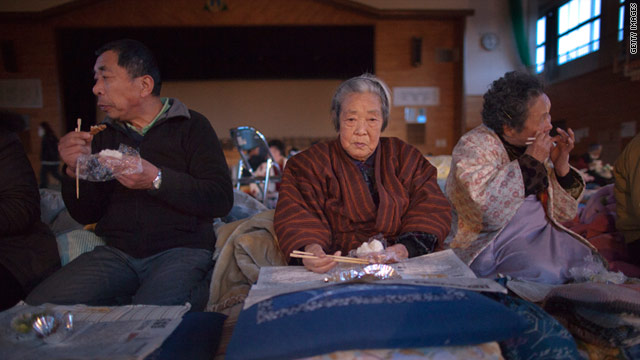
Previous post is completed with this article from CNN
Richard Blewitt, CEO of HelpAge International, a global non-profit that helps disadvantaged older people, said Japan’s large older population could be among the hardest hit by the disaster.
Many older people have found it hard to cope because of vulnerabilities like mobility, he said. “The sad thing is that in a tsunami, there is really very little evacuation time,” he said. “Japan had good preparedness plans and no doubt included plans for older people, but sadly this just wasn’t enough.”
As the emphasis shifts from rescue to relief and recovery efforts, there are specific challenges facing Japan’s elderly victims in the weeks and months and even years ahead, experts said.
“When faced with disaster, older people are physically and psychologically affected in different ways than younger people,” said Sarah Harper, who studies the implications of aging societies.
In emergency situations, older people are more susceptible to environmental changes, such as changes in temperature and lack of food or water. In the aftermath of the Japan disaster, below-freezing temperatures and snow have been hampering relief efforts.
A staff member of the International Federation of Red Cross and Red Crescent Societies, reporting over the weekend from Miyagi prefecture, said there is concern about the elderly, “who have been particularly hard hit and are extremely vulnerable to hypothermia.”
bout 23% of Japan’s population is aged 65 and over. By comparison, in the United States, the figure is just over 13%.
“Younger societies are often energized by a tragedy or challenge, but aging societies may be more likely to despair,” he said.
He continued: “This is a bit speculative because we don’t have any historical experience with societies as old as Japan is. But it seems to me that it’s a real possibility and something that we’ll probably be looking at in years ahead.”
However, the ability of reinvention is deep in the wellsprings of the Japanese national spirit, he noted, citing the extraordinary redirection of the country’s energy following World War II.
“If any aging society can reinvent themselves, then it’s Japan.”

